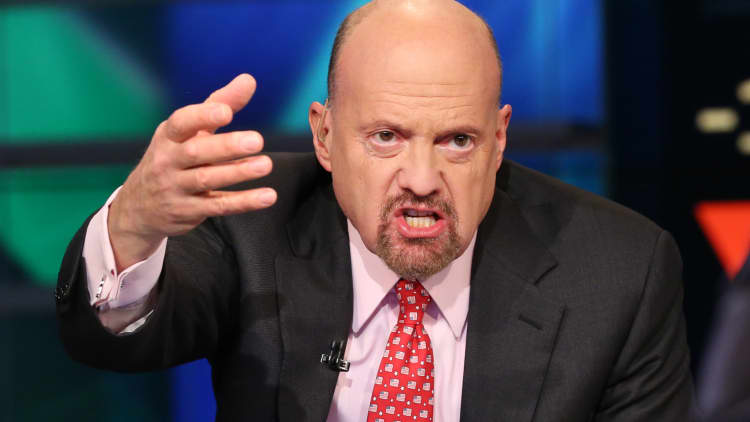CNBC’s Jim Cramer, long known for his bold market calls and unapologetic commentary, delivered a rare moment of self-criticism Thursday night, saying he feels “like a sucker” for having trusted President Trump’s promises about “reciprocal” tariffs.
Cramer, who has consistently described himself as a “fair trader,” not a “free trader,” appeared on CNN’s OutFront with Erin Burnett to break down the fallout from what Trump has branded “Liberation Day”—a sweeping trade offensive that sent markets tumbling and raised tariffs on countries like Vietnam and Cambodia to as high as 49%.
“I feel like a sucker tonight because I am not a free trader… But they screwed it up,” Cramer said.
“They did it in a totally ill-advised way. And I was very let down.”
A Personal Miss for Cramer
Cramer had previously been cautiously optimistic about Trump’s tariff philosophy, saying he believed in matching tariffs as a way to rebalance unfair trade. But Wednesday’s erratic and maximalist rollout left even this longtime skeptic of free trade bewildered.
“What I was hoping was that it would be coordinated. You charge us 20%, we charge you 20%. Not this mess,” he said.
Instead, the White House unleashed a barrage of tariffs, including double-digit levies on key U.S. allies, with little clarity on how the percentages were calculated.
Even Cramer’s own CNBC colleague, Steve Liesman, said Trump “straight up lied” about his promise to keep tariffs symmetrical—undermining the administration’s core argument that the new plan was about fairness.
“Liberation Day” Fallout
Cramer’s comments come on the heels of one of the market’s worst two-day stretches in years. The Dow Jones Industrial Average fell over 1,700 points, while the S&P 500 dropped nearly 10% in just 48 hours. Experts blamed the shock of a new 25% tariff on all foreign cars, the dismantling of the de minimis import exemption, and confusing reciprocal rates that hit dozens of countries without warning.
“I really believed in it,” Cramer said. “And what they came up with? Jeez, come on! Have some gumption. Have some math.”
He also admitted the day’s economic chaos undermined what he had said earlier during his own show, where he’d tried to remain optimistic.
“I’m going Mr. Brightside,” he said on Mad Money. “We’ve been talking about how horrible these tariffs would be for ages.”
The Disconnect Between Talk and Policy
The disconnect between Trump’s promises and the actual rollout has left many policy analysts baffled. Cramer’s frustration reflects a broader market concern that “Liberation Day” is less about economic logic and more about political theater.
From tariffs on penguin-inhabited islands to haphazard enforcement timelines, critics say the plan lacks structure, clarity, and coherence—the very things Cramer hoped it would bring.
“I was just as tough, if not tougher, than his people,” Cramer emphasized. “But this? This isn’t what we were promised.”
What’s Next?
With inflation risks rising and major banks like JPMorgan and Morgan Stanley walking back rate-cut expectations, even former Trump allies in the finance world are flashing red.
Cramer’s disillusionment is likely to resonate with conservative investors and traders who had hoped Trump’s tariffs would finally give U.S. workers the edge.
But as Cramer summed it up:
“This is what they came up with? Jeez, come on.”
Related: Trump Announces Tiered Tariffs on China, EU, India, Others — “This Is Just the Start”
‘No Winner In A Trade War’: China, EU And Others React To Trump’s Reciprocal Tariffs
This Is the Largest Tax Shock in Nearly 60 Years
Here’s What Will Cost More After Trump’s Tariffs: Coffee, Cars, More










